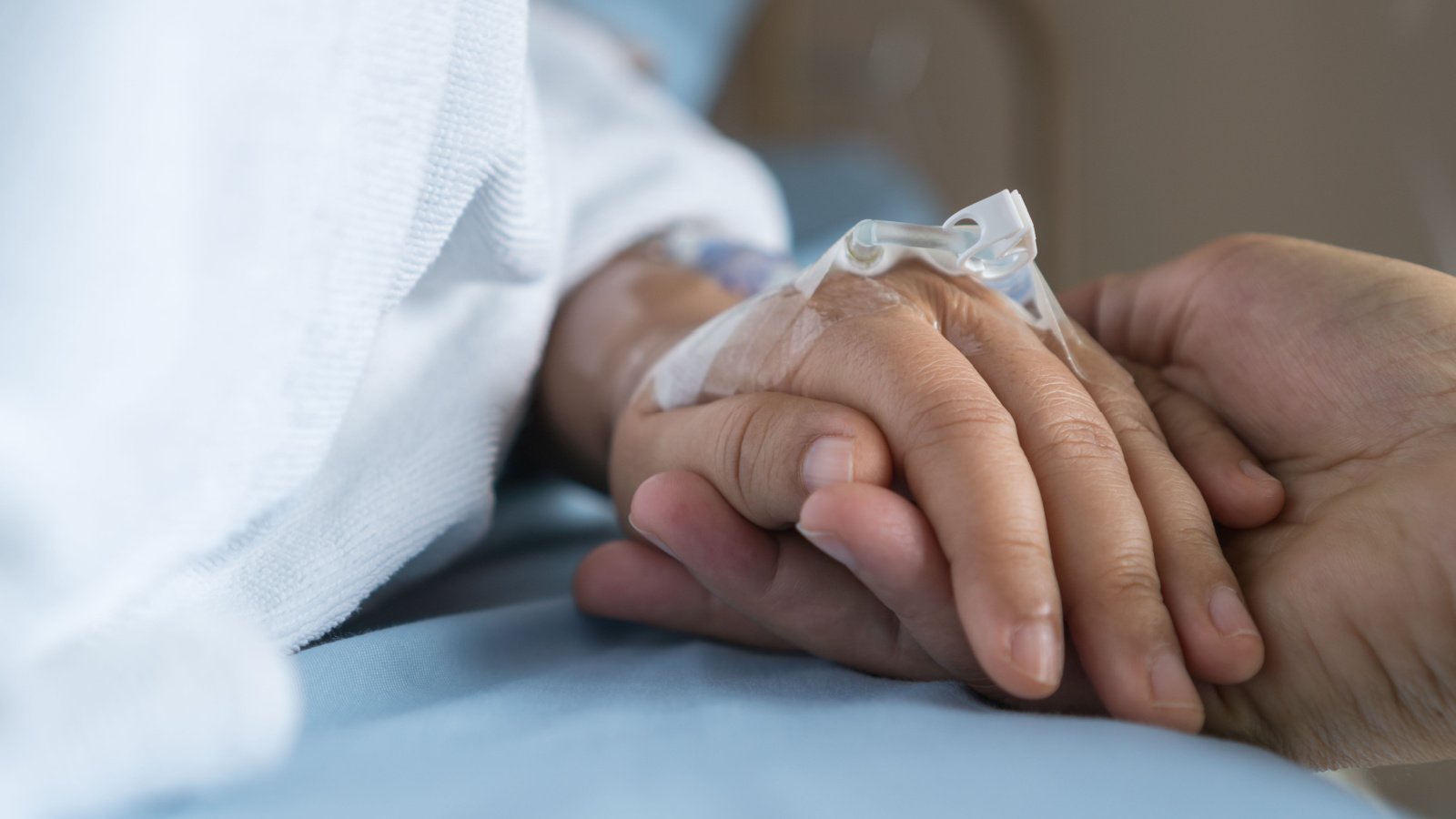The Loss of Chance Doctrine

The Loss of Chance Doctrine. Medical malpractice
typically refers to situations where a medical professional’s negligence leads to a patient’s harm. But if a doctor
didn’t cause you harm and instead just reduced your chances of a favorable outcome, you still deserve compensation.
Rather than focusing solely on direct injuries, the “loss of chance” doctrine focuses on the lost opportunities for
a patient to recover or survive due to a medical professional’s negligence.
Burger Law is a St. Louis-based injury and malpractice law firm that fights on behalf of the
injured and their families. If you believe you or a loved one has been harmed or lost a chance at recovery because
of a healthcare professional’s negligence, speak to a personal injury attorney today at or contact us online for a free consultation. You do not pay until we win your case.
Understanding the “Loss of Chance” Doctrine
The “loss of chance” doctrine is a legal concept that recognizes a
patient’s right to pursue compensation when a medical professional’s negligence results in the patient losing a
chance of recovery or survival. Unlike traditional medical malpractice claims, where the focus is on a direct injury
caused by a medical professional’s negligence, the “loss of chance” doctrine is centered around the idea of a lost
opportunity.
For example, picture a scenario where a patient seeks medical attention for a bad cough. Given the patient’s symptoms
and medical history, the standard of care (what a reasonable and prudent doctor would have done)
would have been to screen for lung cancer, however the physician fails to run the appropriate tests and gives the
patient a prescription for cough medicine. Six months later, the patient’s symptoms have significantly worsened, and
a second doctor finally diagnosed the lung cancer.
While the first doctor is not responsible for the lung cancer, their failure to diagnose
dropped the patient’s cancer survival rate from 60 percent to 30 percent. While
the patient may still have faced challenges with or without the doctor’s negligence, the “loss of chance” doctrine
allows the patient to claim damages for that lost 30 percent chance of a better outcome.
“Loss of Chance” Doctrine in Missouri
Lost chance of survival claims in Missouri were made possible after Wollen v. DePaul Health Center, 828 S.W.2d 681 (Mo.
Apr. 2, 1992). Previous Missouri case law held that doctors had to cause an injury in order to be held
liable for medical malpractice. This is due to the need for causation in personal injury cases. However, the Missouri Supreme
Court concluded that:
A patient with cancer, like Mr. Wollen, would
pay to have a choice between three unmarked doors — behind two of which were death, with life the third option. A
physician who deprived a patient of this opportunity, even though only a one-third chance, would have caused her
real harm.
Because of that, the court argued:
… the patient does suffer a harm
when the doctor fails to diagnose or adequately treat a serious injury or disease. The harm suffered is not,
however, the loss of life or limb. The harm is the loss of the chance of recovery.
The “loss of chance” doctrine can be applied to cases where a loved one died (a “lost chance of survival claim”),
where a family would file a medical malpractice claim instead of a wrongful death suit because a physician did not cause the
illness and there is always the chance your loved one would have died anyway. Loss of chance can also be applied if
you don’t pass from your illness, but have a significantly more difficult recovery or worse health outcome that
leads to further damages.
Calculating Damages in “Loss of Chance” Claims
In medical malpractice cases, determining damages can be more straightforward: calculate medical bills, lost wages,
pain and suffering and so on. However, the “loss of chance” doctrine introduces a unique challenge in quantifying
damages. Here’s how damages are typically approached in these cases:
- Valuation of lost chance — Damages are often calculated based on the perceived value of the lost
opportunity. For instance, if you had a 50 percent chance of survival before medical negligence and only a 20
percent chance afterward, the lost chance is 30 percent. - Economic damages —
- Medical expenses — These include costs for treatments, medications, hospital stays and any
other medical expenses incurred during your treatment. - Lost wages — If the negligence led to an extended period of recovery or permanent
disability, you are owed compensation for wages lost during that period.
- Medical expenses — These include costs for treatments, medications, hospital stays and any
- Non-economic damages —
- Pain and suffering — This covers the physical pain and emotional distress experienced due
to the negligence. - Loss of consortium — Compensation
for the loss of companionship or a diminished relationship with a spouse or partner. - Diminished quality of life — If the negligence has led to long-term health implications
that reduce your quality of life, damages can be claimed.
- Pain and suffering — This covers the physical pain and emotional distress experienced due
- Final calculation of damages — The negligent doctor cannot be held responsible for your full
damages, as in a loss of chance claim they’re not responsible for the underlying illness. Because of that your
final compensation would be your total damages multiplied by the lost chance of recovery. If your total damages
in a case were $100,000 and there was a 30 percent lost chance of survival or recovery:$1,000,000 (total damages) x .30 (30 percent) = $300,000 in final compensation
Common Examples of Loss of Chance Cases
The “loss of chance” doctrine doesn’t apply to every medical malpractice scenario. However, there are particular
situations where it might be the best path to maximum compensation:
Delayed Diagnoses
One of the most common scenarios involves a physician’s failure to diagnose a condition promptly. For example, if a
patient’s cancer could have been detected and treated earlier, but the doctor negligently failed to identify it,
leading to a decreased chance of survival. Similarly, if a patient presents clear symptoms of a heart attack, but
the doctor misdiagnoses it as indigestion, leading to a worse outcome, the “loss of chance” doctrine might be
applicable.
Misreading or Ignoring Test Results
Medical professionals might misinterpret tests, leading to a wrong diagnosis or overlooking a critical condition. For
instance, if a radiologist fails to spot a tumor in an imaging test, which subsequently grows and becomes more
challenging to treat.
Medication Errors
Administering the wrong medication or the wrong dosage can exacerbate a patient’s condition or introduce new
complications. If these errors reduce the patient’s chances of recovery or survival, they might have a “loss of
chance” claim.
Failure to Refer or Follow Up
Sometimes, general practitioners might fail to refer a patient to a specialist when symptoms suggest a more severe
condition. Delays in seeing a specialist can reduce the chances of successful treatment. Similarly, if a doctor
doesn’t schedule follow-up appointments to monitor a condition or the effects of a treatment, it might lead to a
reduced chance of optimal outcomes.
Failure to Admit or Transfer in Hospitals
Hospitals are critical junctures in your treatment journey. There are instances where your condition requires
specialized care, equipment or expertise that might not be available in the current facility. Failure to admit a
patient in need of urgent care or delay in transferring to a better-equipped facility can rob the patient of crucial
treatment time, thus reducing their chances of recovery or survival.
Call Burger Law’s Missouri and Illinois Loss of Chance Lawyers Today
For patients and their families dealing with devastating illnesses and tragedy, loss of chance claims are not just
about seeking compensation, but about reclaiming the potential of a life once full of possibilities. If you or a
loved one suspect that you’ve been subjected to a diminished chance of recovery or survival because of a healthcare
professional’s negligence, you need to act promptly. We only get one shot at life, and you only have one chance at
maximum compensation. Reach out today and let us fight for the chances you deserve. Call Burger Law at
or fill out our online contact form for a free consultation.

